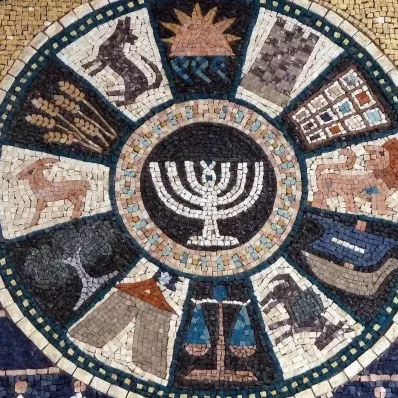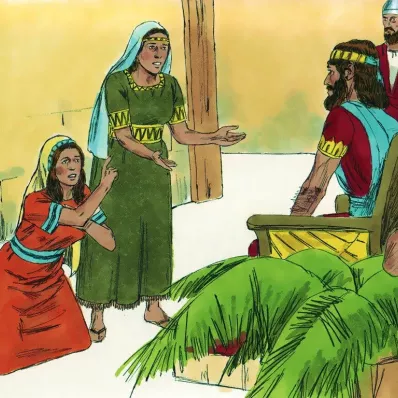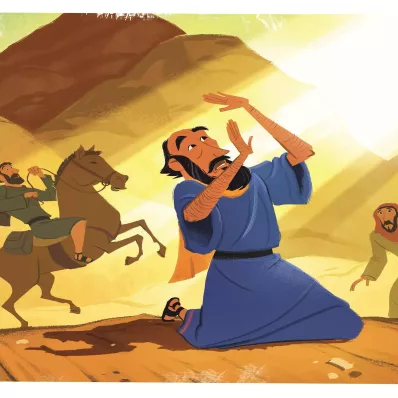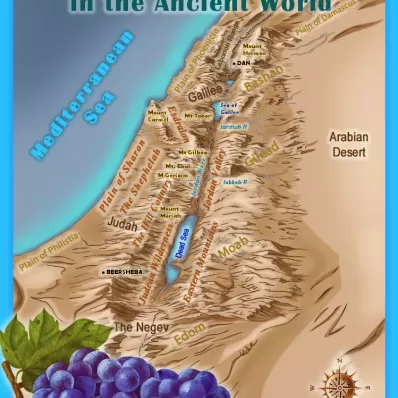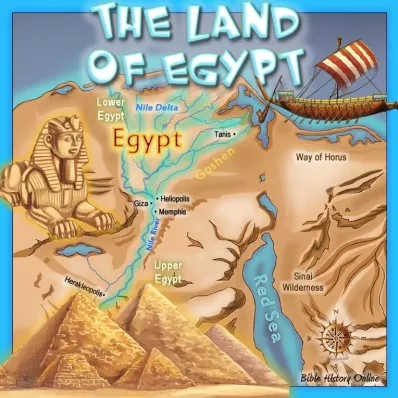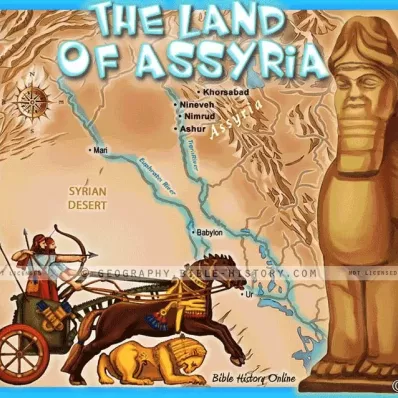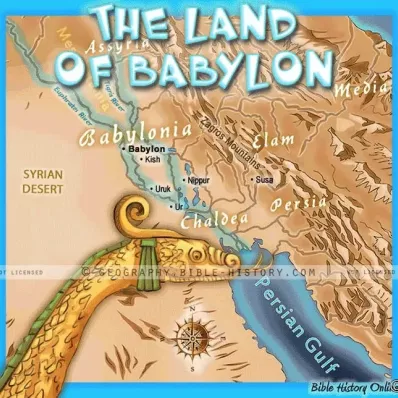Ephesians, Epistle to
was written by Paul at Rome about the same time as that to the
Colossians, which in many points it resembles.
Contents of. The Epistle to the Colossians is mainly
polemical, designed to refute certain theosophic errors that had
crept into the church there. That to the Ephesians does not seem
to have originated in any special circumstances, but is simply a
letter springing from Paul's love to the church there, and
indicative of his earnest desire that they should be fully
instructed in the profound doctrines of the gospel. It contains
(1) the salutation (1:1, 2); (2) a general description of the
blessings the gospel reveals, as to their source, means by which
they are attained, purpose for which they are bestowed, and
their final result, with a fervent prayer for the further
spiritual enrichment of the Ephesians (1:3-2:10); (3) "a record
of that marked change in spiritual position which the Gentile
believers now possessed, ending with an account of the writer's
selection to and qualification for the apostolate of heathendom,
a fact so considered as to keep them from being dispirited, and
to lead him to pray for enlarged spiritual benefactions on his
absent sympathizers" (2:12-3:21); (4) a chapter on unity as
undisturbed by diversity of gifts (4:1-16); (5) special
injunctions bearing on ordinary life (4:17-6:10); (6) the
imagery of a spiritual warfare, mission of Tychicus, and
valedictory blessing (6:11-24).
Planting of the church at Ephesus. Paul's first and hurried
visit for the space of three months to Ephesus is recorded in
Acts 18:19-21. The work he began on this occasion was carried
forward by Apollos (24-26) and Aquila and Priscilla. On his
second visit, early in the following year, he remained at
Ephesus "three years," for he found it was the key to the
western provinces of Asia Minor. Here "a great door and
effectual" was opened to him (1 Cor. 16:9), and the church was
established and strengthened by his assiduous labors there
(Acts 20:20, 31). From Ephesus as a centre the gospel spread
abroad "almost throughout all Asia" (19:26). The word "mightily
grew and prevailed" despite all the opposition and persecution
he encountered.
On his last journey to Jerusalem the apostle landed at
Miletus, and summoning together the elders of the church from
Ephesus, delivered to them his remarkable farewell charge (Acts
20:18-35), expecting to see them no more.
The following parallels between this epistle and the Milesian
charge may be traced:
(1.) Acts 20:19 = Eph. 4:2. The phrase "lowliness of mind"
occurs nowhere else.
(2.) Acts 20:27 = Eph. 1:11. The word "counsel," as denoting
the divine plan, occurs only here and Heb. 6:17.
(3.) Acts 20:32 = Eph. 3:20. The divine ability.
(4.) Acts 20:32 = Eph. 2:20. The building upon the foundation.
(5.) Acts 20:32 = Eph. 1:14, 18. "The inheritance of the
saints."
Place and date of the writing of the letter. It was evidently
written from Rome during Paul's first imprisonment (3:1; 4:1;
6:20), and probably soon after his arrival there, about the year
62, four years after he had parted with the Ephesian elders at
Miletus. The subscription of this epistle is correct.
There seems to have been no special occasion for the writing
of this letter, as already noted. Paul's object was plainly not
polemical. No errors had sprung up in the church which he sought
to point out and refute. The object of the apostle is "to set
forth the ground, the cause, and the aim and end of the church
of the faithful in Christ. He speaks to the Ephesians as a type
or sample of the church universal." The church's foundations,
its course, and its end, are his theme. "Everywhere the
foundation of the church is the will of the Father; the course
of the church is by the satisfaction of the Son; the end of the
church is the life in the Holy Spirit." In the Epistle to the
Romans, Paul writes from the point of view of justification by
the imputed righteousness of Christ; here he writes from the
point of view specially of union to the Redeemer, and hence of
the oneness of the true church of Christ. "This is perhaps the
profoundest book in existence." It is a book "which sounds the
lowest depths of Christian doctrine, and scales the loftiest
heights of Christian experience;" and the fact that the apostle
evidently expected the Ephesians to understand it is an evidence
of the "proficiency which Paul's converts had attained under his
preaching at Ephesus."
Relation between this epistle and that to the Colossians
(q.v.). "The letters of the apostle are the fervent outburst of
pastoral zeal and attachment, written without reserve and in
unaffected simplicity; sentiments come warm from the heart,
without the shaping out, pruning, and punctilious arrangement of
a formal discourse. There is such a fresh and familiar
transcription of feeling, so frequent an introduction of
coloquial idiom, and so much of conversational frankness and
vivacity, that the reader associates the image of the writer
with every paragraph, and the ear seems to catch and recognize
the very tones of living address." "Is it then any matter of
amazement that one letter should resemble another, or that two
written about the same time should have so much in common and so
much that is peculiar? The close relation as to style and
subject between the epistles to Colosse and Ephesus must strike
every reader. Their precise relation to each other has given
rise to much discussion. The great probability is that the
epistle to Colosse was first written; the parallel passages in
Ephesians, which amount to about forty-two in number, having the
appearance of being expansions from the epistle to Colosse.
Compare:
Eph 1:7; Col 1:14
Eph 1:10; Col 1:20
Eph 3:2; Col 1:25
Eph 5:19; Col 3:16
Eph 6:22; Col 4:8
Eph 1:19-2:5; Col 2:12,13
Eph 4:2-4; Col 3:12-15
Eph 4:16; Col 2:19
Eph 4:32; Col 3:13
Eph 4:22-24; Col 3:9,10
Eph 5:6-8; Col 3:6-8
Eph 5:15,16; Col 4:5
Eph 6:19,20; Col 4:3,4
Eph 5:22-6:9; Col 3:18-4:1
"The style of this epistle is exceedingly animated, and
corresponds with the state of the apostle's mind at the time of
writing. Overjoyed with the account which their messenger had
brought him of their faith and holiness (Eph. 1:15), and
transported with the consideration of the unsearchable wisdom of
God displayed in the work of man's redemption, and of his
astonishing love towards the Gentiles in making them partakers
through faith of all the benefits of Christ's death, he soars
high in his sentiments on those grand subjects, and gives his
thoughts utterance in sublime and copious expression."




